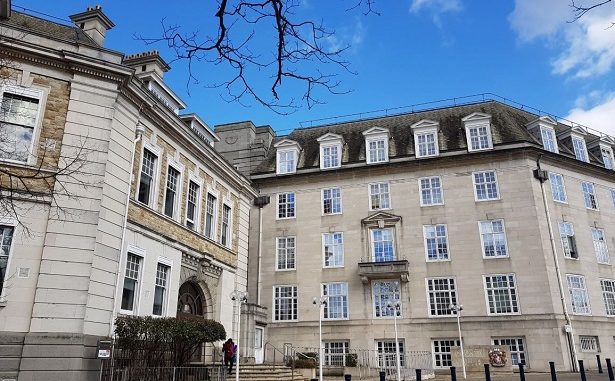
Kent County councillors have today (February 11) voted through the authority’s spending plans for 2021-22 – including a ‘regrettable but unavoidable’ 1.99% rise in general council tax, and 3% ring-fenced to meet increased spending on adult social care.
The proposals were accepted at a virtual meeting of the full county council with 55 for, 12 against and 2 abstentions.
During today’s Budget meeting an amendment to the formal budget recommendations, proposed and seconded by Antony Hook and Ida Linfield of the Liberal Democrat Group was approved, following their acceptance of a slight change to the wording suggested by the Leader of the Council.
The successful amendment stated that council tax is an ‘appalling method of raising taxation’, takes no account of ability to pay and is ‘outdated.’ As a result of the amendment, an additional recommendation was added asking the Leader to write to the Secretary of State to request appropriate reviews of council tax banding.
Financial support
As part of the budget plans KCC has also proposed a package of extra financial support and funding for Kent’s lowest income families. This will include an automatic £50 reduction on the council tax bill of anyone currently receiving a discount. There are now over 65,000 families eligible for this scheme, compared to 56,000 a year ago.
It is also proposed to give every district council funding for their Council Tax hardship fund, which will allow families just above the very lowest income bracket to apply for extra financial support.
The Helping Hand Scheme will also provide help to just-managing families with utility bills, firms struggling to stay afloat, digital poverty and supporting crowdfunded projects to get communities back on their feet.
The council tax increase, which equates to £67.50 a year (£1.30 a week) for Band D households, is to meet budget pressures predicted in the next financial year due to the pandemic and to meet extra spending pressures in social care. Council tax is now 70% of the income the authority relies on to pay for services.
The authority is having to increase its adult social care budget by £40.1m, taking the total adults social care budget to £437.5m this year, and COVID-19 has triggered increased care needs, and risks to care services in the coming year.
‘No choice’
Deputy Leader and Cabinet Member for Finance, Peter Oakford, said: “As a council we understand the impact of this pandemic on our residents. It has caused uncertainty, anxiety, furlough and job losses. It has impacted finances, home schooling and of course the cruel loss of our loved ones.
“I do not want to be in the position I am today, where I sit before you proposing a council tax increase. However, in order for KCC to continue to deliver vital services, I have no choice.
“Residents clearly told us in their feedback to the budget consultation that we should prioritise social care services. Therefore, we are proposing an increase of 3% specifically to fund the increase in demand and costs for Adult Social Care services.
“In total this means an increase of 5% in council tax, which reflects the stark reality of the position we are in. Reduced income and increased demand for our services.
“Kent County Council cannot ignore the national picture and wider economy when making our budget plans. We are in a position where 50% of business rates are now retained locally rather than pooled and redistributed through a needs-led formula, and the cost of council tax support is the responsibility of local councils.
“Since 2013/14 KCC’s core revenue support grant from central Government has reduced from around £247m to approximately £10m, which means increasingly core local authority services have to be funded by council tax.”
The council will be spending around £1.132bn on day-to-day services, which equates to about £720 for every person living in the county. This is an increase of £68.8m (6.5%) on the approved budget for 2020-21 an extra £41 for every person.
It originally intended to add £9.2million to its reserves to cover off the risks relating to adult social care services and children’s services, as well as the huge uncertainty caused by the pandemic.
However, since it produced its draft budget the council has revised its plans to take account of the third national lockdown which has meant taking out £1.8 million of the reserves instead.
Changes include an anticipated £5million rise in prices for adult social care, another £5million for increased social care demand and removing a £3million saving on pothole repairs due to less government funding for highways.
‘Complex and challenging’
KCC Leader Roger Gough said: “This has been for me, and I am sure for many members, the most complex and challenging budget to set in any of our memories.
“It is, of course, always much tougher to deliver savings after so many years of austerity, and the £40m that we have presented, chiefly in savings, represents an exacting process and should be seen in this light.
“The budget ultimately reflects the impact of COVID-19 and comes after a year of huge one-off expenditures related to the pandemic. And the question is what will be the long-term impact?
“As we come out of lockdown the risks and pressures on our services and spending increase. Greater complexity in needs of people in care, pressures on mental health, domestic abuse; and the children who were out of sight of public agencies, when so many fewer were in school, are now likely to come back to our services in increased numbers and with increased needs.
“We have had significant support from government this year, which we have lobbied hard for. But, if we look ahead, we see a lot of government restraint over the years to come, as it seeks to rebuild its finances after COVID-19.”
Kent has received about £140million from the government to cover additional spending incurred and income losses to date due to the impact of the pandemic.

